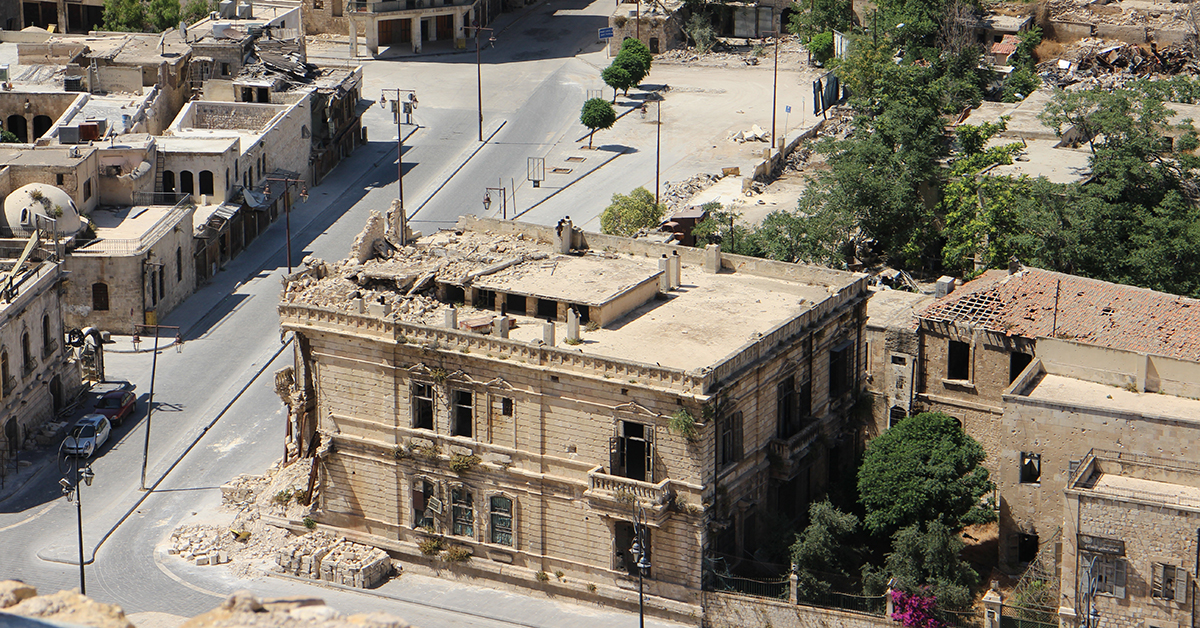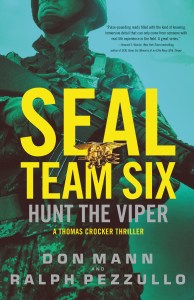How to Set a Thriller in Syria
 It’s relatively easy to set a thriller in New York City, or, say, the South of France. You either travel there to soak up the atmosphere and interact with the locals, or you read some of the many books and other accounts that have been set in both locales. But what if you’re setting a thriller in present-day Syria? My co-author, former SEAL Team 6 member Don Mann, and I have set out to do so in Seal Team Six: Hunt the Viper.
It’s relatively easy to set a thriller in New York City, or, say, the South of France. You either travel there to soak up the atmosphere and interact with the locals, or you read some of the many books and other accounts that have been set in both locales. But what if you’re setting a thriller in present-day Syria? My co-author, former SEAL Team 6 member Don Mann, and I have set out to do so in Seal Team Six: Hunt the Viper.
Seems like an ideal backdrop in some ways. Syria and the civil war there have been front-page news since 2012. The continuing violence has yielded hundreds of thousands of casualties, and the millions of civilians who have fled the country have created the greatest refugee crisis since World War II. So there’s plenty to work with in terms of human tragedy and drama.
Furthermore, the conflict offers spectacularly brutal, and highly motivated villains on both sides—the Islamic State of Iraq and Syria (aka ISIS), which regularly beheads its opponents, and the regime of Bashar al-Assad that has killed ten of thousands civilians with aerial bombs and chemical weapons. Actively aiding the Assad regime have been Russia and Iran, while the United States and Western powers have tried to limit their involvement.
But how do you set a thriller in present-day Syria without, one, misrepresenting the complexity of the conflict; two, turning the antagonists into caricatures; and, three, trivializing the motives of the parties involved?
Obviously, traveling to Syria and conducting interviews with members of ISIS wasn’t a viable option. So, I did what I considered to be the next best thing—namely interviewing as many active participants who were willing to talk to me. These included a former CIA case agent who had dealt directly with leaders of ISIS, humanitarian workers who had spent time in the ravaged city of Aleppo, members of the U.S. military and State Department who had served in Kurdistan and Syria, Syrian civilians who had lived in the ISIS controlled Syrian city of al-Raqqa, a Kurdish anti-ISIS militiaman, and U.S.-led private military contractors currently fighting there.
The latter two were particularly forthcoming in providing descriptions fresh from battlefield, which they did while off-duty via Skype. Among other things, I learned that Skype is the preferred form of communication for people in geo hotspots like Afghanistan and Syria—one, because it’s immediate, and, two, because all transmissions are encrypted.
These individuals helped me better understand the setting, issues, and the stakes and beliefs of the people involved in the conflict in Syria. Then it was my job as a writer to imbue all the characters on all sides—including ISIS leader Abu Samir al-Sufi (the Viper)—with human feelings and portray them with empathy.
About the Book
By clicking 'Sign Up,' I acknowledge that I have read and agree to Hachette Book Group’s Privacy Policy and Terms of Use
What To Read Next
Ralph Pezzullo is a New York Times bestselling author and award-winning playwright, screenwriter, and journalist. His books include Jawbreaker (with CIA operative Gary Berntsen) and Zero Footprint (with military contractor Simon Chase).






